
From left: Croatians Jana Spero of the Justice Ministry, Andreja Metelko-Zgombic representing the Justice Ministry, University of Rijeka professor Vesna Crnic-Grotic and Justice Minister Orsat Miljenic sit in the courtroom of the International Court of Justice (ICJ) in The Hague as the UN’s highest court started to hand down its verdict in a long-running genocide case on Tuesday.(Photo: Saudi Gazette/AFP)
The Hague, 14 Rabi’ul Akhir 1436/4 February 2015 (MINA)- The UN’s highest court on Tuesday rejected rival claims of genocide by Croatia and Serbia in landmark rulings over the 1991-1995 war, as both former foes reluctantly accepted the verdict and pledged to turn the page on their bloody history.
Serbian President Tomislav Nikolic said he hoped the judgement would help the two Balkans neighbors to find “lasting peace,” while his Croatian counterpart Ivo Josipovic called on politicians to work together to build good relationships.
Sixteen years after the first case was lodged at the International Court of Justice, chief judge Peter Tomka dismissed Zagreb’s claim that Serb forces committed genocide during Croatia’s war of independence, Saudi Gazette quoted by Mi’raj Islamic News Agency (MINA) as reporting.
He made a similar ruling in a counter-claim by Belgrade over a Croatian counter-offensive that forced 200,000 Serbs to flee after the last major battle of the war.
Also Read: Hundreds Rally in Stockholm to Condemn Israeli Attacks and Ceasefire Violations in Gaza
Tomka said both sides had committed crimes during the conflict, including forcible displacement, but that neither had proved genocide, which “pre-supposes the intent to destroy a group, at least in part”.
But he added: “The court encourages the parties to continue their cooperation with a view to offering appropriate reparation to the victims of such violations, thus consolidating peace and stability in the region.”
Zagreb had dragged Belgrade before the ICJ in 1999 on genocide charges linked to the war in Croatia that killed 20,000 people, one of several conflicts to erupt during the bloody breakup of the former Yugoslavia.
Serbia was accused of ethnic cleansing as a “form of genocide” in the town of Vukovar and other areas, leading to large numbers of Croats being displaced, killed or tortured and their property destroyed. Vukovar was captured after a harrowing three-month-long siege by the Yugoslav army and Serb rebels, one of the darkest chapters of the conflict.
Also Read: Mass Protests Erupt in Bologna Against Israeli Teams Ahead of EuroLeague Match
The Hague-based Yugoslav war crimes tribunal has sentenced several Serb commanders for war crimes committed at Vukovar, including senior commander Mile Mrksic, who was jailed for 20 years on appeal for his role in the murder of more than 200 prisoners.
After Vukovar’s fall, about 22,000 non-Serbs were expelled, and about 350 people from the Vukovar region are still reported missing.
Belgrade responded with a counter-suit in 2010, saying about 200,000 ethnic Serbs were forced to flee when Croatia launched Operation Storm to retake its territory in 1995.
Following the offensive, the proportion of ethnic Serbs in Croatia shrank from 12 percent to four percent.
Also Read: Finland’s Largest Retailer Halts Israeli Product Sales
Belgrade was outraged in 2012 when Operation Storm’s Croatian military commander, Ante Gotovina, was acquitted on appeal before the Hague-based International Criminal Tribunal for the former Yugoslavia (ICTY).
Tomka extensively referred to rulings by ICTY, which has never indicted any suspect for genocide in Croatia, saying the tribunal’s findings were “generally consistent” with those of the ICJ.
Speaking in Belgrade, Nikolic said the ICJ verdict had not “fully responded” to Serbia’s expectations, but did establish that “Croatian forces had committed mass crimes against the Serb population in Croatia”.
“I hope that in the future, Serbia and Croatia will have the common strength to deal with all that hinders the possibility of establishing a period of lasting peace and prosperity in our region,” he said. Zagreb reacted with dismay.
Also Read: 1,000th Western Military Supply Plane Lands in Israel Since Gaza War
“We are not satisfied with the court’s ruling, but we accept it in a civilized manner,” Prime Minister Zoran Milanovic told reporters. But Josipovic said: “It is up to politicians to build good relations between states.”
Ties between the two improved slowly after the war but turned frosty in 2012 after inflammatory comments by both sides.
But speaking from Vukovar, former Croatian PoW association head Danijel Rehak denounced the verdict by the 17-judge panel. “There is no reconciliation here,” he said.
In Serbia, Miodrag Linta of the Croatian Serb refugee association was equally unhappy, saying “these crimes were part of a plan by Croat leaders to destroy the Serbs”.
Also Read: Harvard Builds Archive of Israeli Life, Preparing for “May Not Survive”
Amnesty International called on the two countries to ensure that war crimes on both sides are investigated and punished.
So far the ICJ, which rules in disputes between states, has recognized only one genocide case since opening its doors in 1946.
Genocide is the most serious of international crimes but also the hardest to prove.
In 2007 the court ruled that genocide had taken place in 1995, at Srebrenica in neighboring Bosnia, when almost 8,000 Muslim men and boys were slaughtered and their bodies dumped in mass graves by Bosnian Serb troops who overran a UN-protected enclave. (T/P010/P3)
Also Read: German Opposition Party Urges End to the Suppression of Pro-Palestinian Movement
Mi’raj Islamic News Agency (MINA)





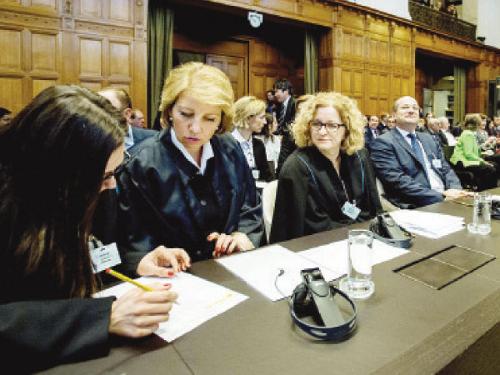

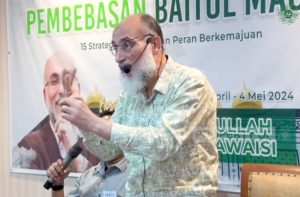




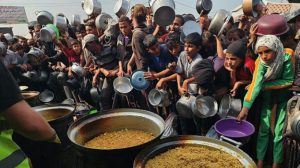


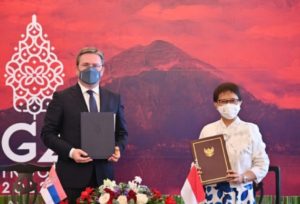
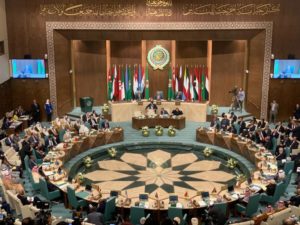

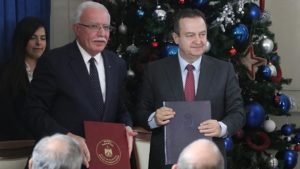
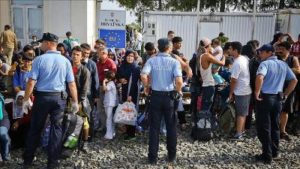














 Mina Indonesia
Mina Indonesia Mina Arabic
Mina Arabic